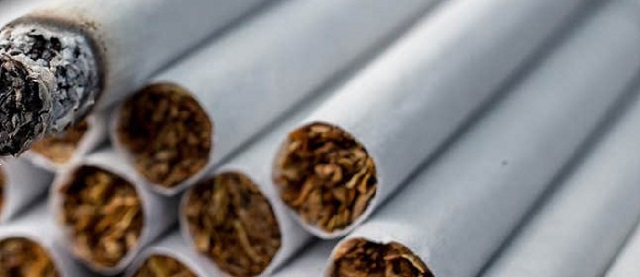
Huge taxes will continue to water down dividends
Kampala, Uganda | ISAAC KHISA | Have you ever imagined running a company that hands over a huge chunk of its revenue to government as tax compared to shareholders’ dividends?
This is the situation that managers at the British American Tobacco Uganda (BATU) face as they strive to turn around the firm’s operations.
The tables turned against the shareholders in the cigarette firm when the government enacted the Tobacco Control Act in 2016 as a measure to deter cigarette smoking.
Anti-tobacco activists argued that there was an increase in health-related issues linked to tobacco use such as cancer, heart disease and high blood pressure.
Since then, the firm’s revenue has dropped sharply over the years although in recent years, the revenue has slowly picked up. Ironically, it is the government that has been the major beneficiary raking in more revenue from BATU.
The latest financial results released on Feb.14 show that although BATU recorded Shs164.3bn in revenue in 2019 thanks to its revamped portfolio and distribution efficiency, its contribution to government revenue in form of excise duty, Value Added Tax and Corporation tax took a whopping Shs96bn.
The shareholders remained with merely Shs15.7bn as net profit to share among themselves as dividends.
BATU saw a similar trend in 2018, 2017 and 2016. For instance, in 2018, the tobacco firm recorded Shs154bn in revenue but the government took Shs90.5bn as taxes, leaving shareholders with merely Shs13.7bn.
A year earlier, in 2017, BATU recorded Shs149.7bn revenue but the government snatched Shs86.5bn, with the investors remaining with merely Shs12bn.
This is in sharp contrast with the period prior to the enactment of the tough anti-tobacco law. For instance, in 2015, BATU recorded Shs270bn as revenue but paid the government Shs 69bn. The shareholders shared Shs 36.8bn as dividend, which was the net profit for the year.
Market analysts predict the firm might take another 10 years to record such profitability and dividend pay-out similar to that recorded prior to the ant-tobacco law.
When contacted to comment on the current trends, the company’s management remained cagey.
“I can only say that we are operating under a very tough regulatory environment,” a source at the company who preferred anonymity said. “My comment on our taxes to government vis a vis returns to shareholders may be misinterpreted as promoting cigarette smoking.”
However, Nicholas Ecimu, the BATU company secretary, said on Feb.14 that there is still high incidence of illicit trade in the cigarette business in Uganda and that this affects business and the economy in general, denying government an estimated Shs30bn in annual revenue.
“We continue to work closely with the relevant government agencies to tackle illicit trade in cigarettes,” he said. “Implementation of digital tracking solutions by the Uganda Revenue Authority presents an opportunity to further address this challenge.”
URA started enforcing the digital tax stamps this year on various products including cigarettes to seal any revenue leakages.
BATU was listed on the Uganda Securities Exchange in 2000, and its shares have been trading at Shs30, 000 for years now.The company’s major product brands include Benson & Hedges, Embassy, Rex and Sportsman.
The tobacco company is a subsidiary of BAT (investments) Ltd., UK, one of the leading players in the global tobacco business. BAT’s history dates back to 1927, when commercial varieties of tobacco were introduced in Uganda. Tobacco is now a key cash crop in the country.
In 1928, the company built its first cigarette factory in East Africa at Jinja. In 1949, it acquired the East African Tobacco Company Limited which had started in Tanganyika in 1934 and operated its own factory in Kampala. This became the main operating company of BAT in East Africa for the next 15 years.
In 1972, the company was nationalized due to the Properties and Business (Acquisitions) Decree of 1972 made under President Idi Amin Dada’s Government.
In 1982, BATU applied to the government under the Expropriated Properties Act, 1982 leading to the joint venture of 1984 that granted BAT (investments) Ltd UK, pre-emptive rights over the government’s shareholding in BAT Uganda. Government then undertook to divest its holding in the company to members of the Ugandan public and other investors.
In April 1988, BAT Uganda changed its name to British American Tobacco Uganda Limited.
However, since 2005, BATU is said to have progressively scaled back its Ugandan operations with the aim of exploiting economies of scale offered by its Kenyan subsidiary.
Indeed, in 2014, the company exited from the leaf buying business in Uganda citing hostile tax regime as well as punitive legislation. This was followed by the closure of its cigarette production plant in Uganda when management transferred its manufacturing operations to its Kenyan business.
Tough issues in the anti-tobacco law
- 100% smoke-free public areas: smoking is not permitted within 50 meters of public spaces
- Complete ban on tobacco advertising, promotion and sponsorship (TAPS), as well as on cigarette pack displays at the point of sale
- No sale of cigarettes in public places such as healthcare facilities, cinemas, police stations, prisons, or within 50 meters of educational institutions or places where children are cared for
- No sale of tobacco products to any person under 21 years of age
- No sale of duty-free tobacco products
- Complete ban on shisha (waterpipes), electronic cigarettes and chewable tobacco products
- Large pictorial health warnings, covering 65% of the pack to inform the public of the dangers of tobacco.
****
 The Independent Uganda: You get the Truth we Pay the Price
The Independent Uganda: You get the Truth we Pay the Price



